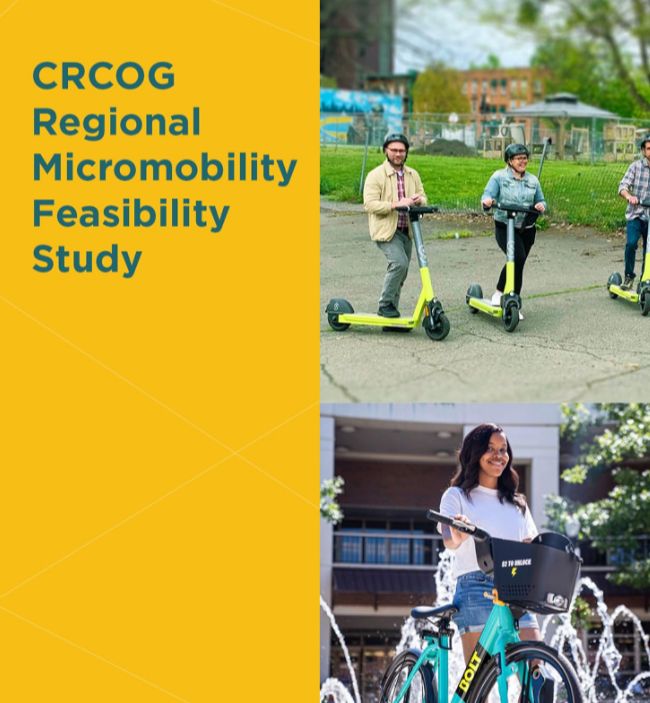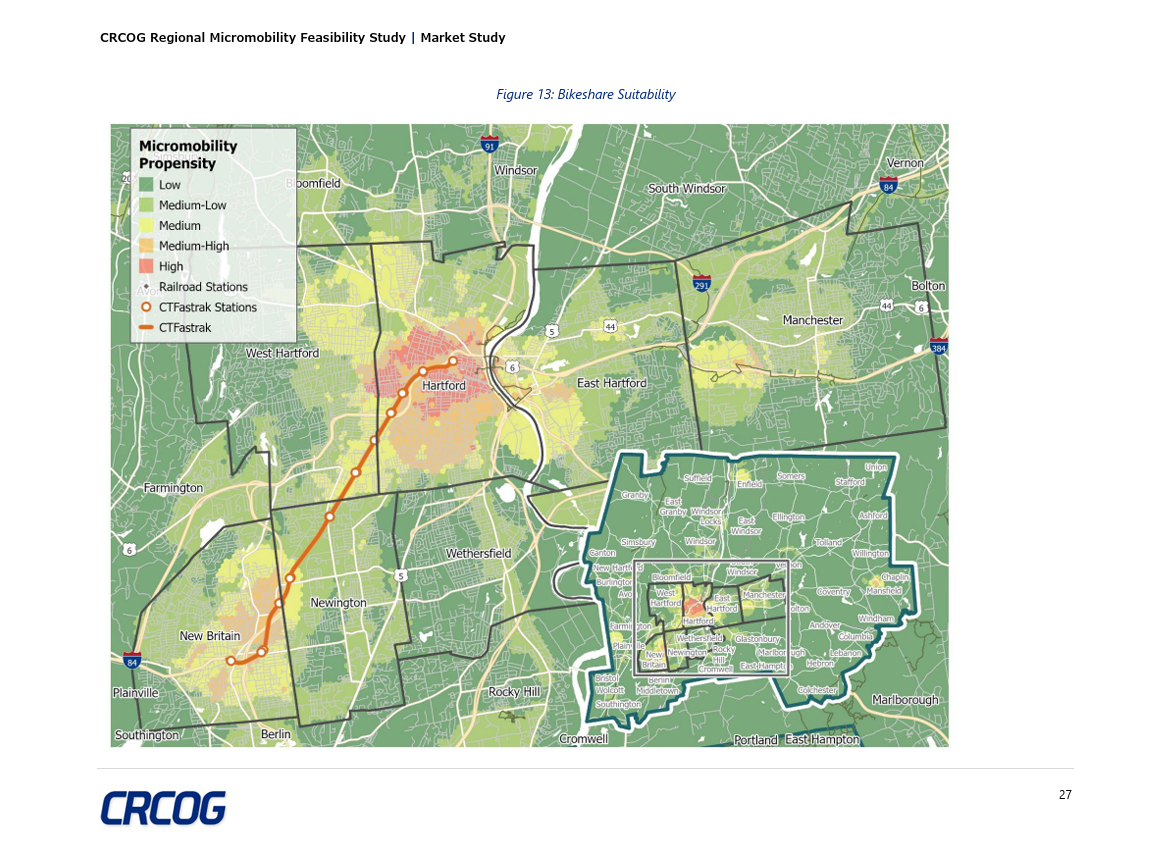Foursquare ITP worked with Capital Regional Council of Governments (CRCOG) to explore the feasibility and logistics associated with establishing a regional micromobility program. Connecticut’s Capitol Region had been exploring ways to launch a regional micromobility program but funding constraints, vendor instability, and finally the COVID-19 pandemic impeded progress. In 2021, a successful scooter program launched in Hartford, creating renewed interest in developing a regional approach for micromobility.

Following up on a seven-year old Hartford Region Bike Share Plan that we developed, Foursquare ITP was now tasked with creating a regional micromobility plan that identifies how the Capitol Region’s diverse towns and cities can work together on a single seamless micromobility program. Most of the communities on their own are too small to support a successful scooter or bikeshare program but could support such a system when combined. Foursquare ITP developed a plan centered around building off of Hartford’s successful private-sector-led approach to scootershare. Our team helped CRCOG identify solutions to various governmental and organizational challenges facing a multi-jurisdictional micromobility system.
The final plan recommends creating a regional mobility collective that would oversee and manage micromobility on behalf of all participating communities. Foursquare ITP developed an implementation plan that outlines next steps in creating such a collective. As part of the study, we engaged with CRCOG jurisdictions and institutional stakeholders to hear about their own concerns and educate them on the state of micromobility today. The plan was approved by CRCOG’s policy board in late 2022 and the region is embarking on next steps to make the proposed mobility collective a reality.

Solutions and Outcomes
- Created a data-driven and stakeholder informed scootershare and bikeshare feasibility analysis.
- Developed an implementation plan for moving forward with a mobility collective to create a regional micromobility program.